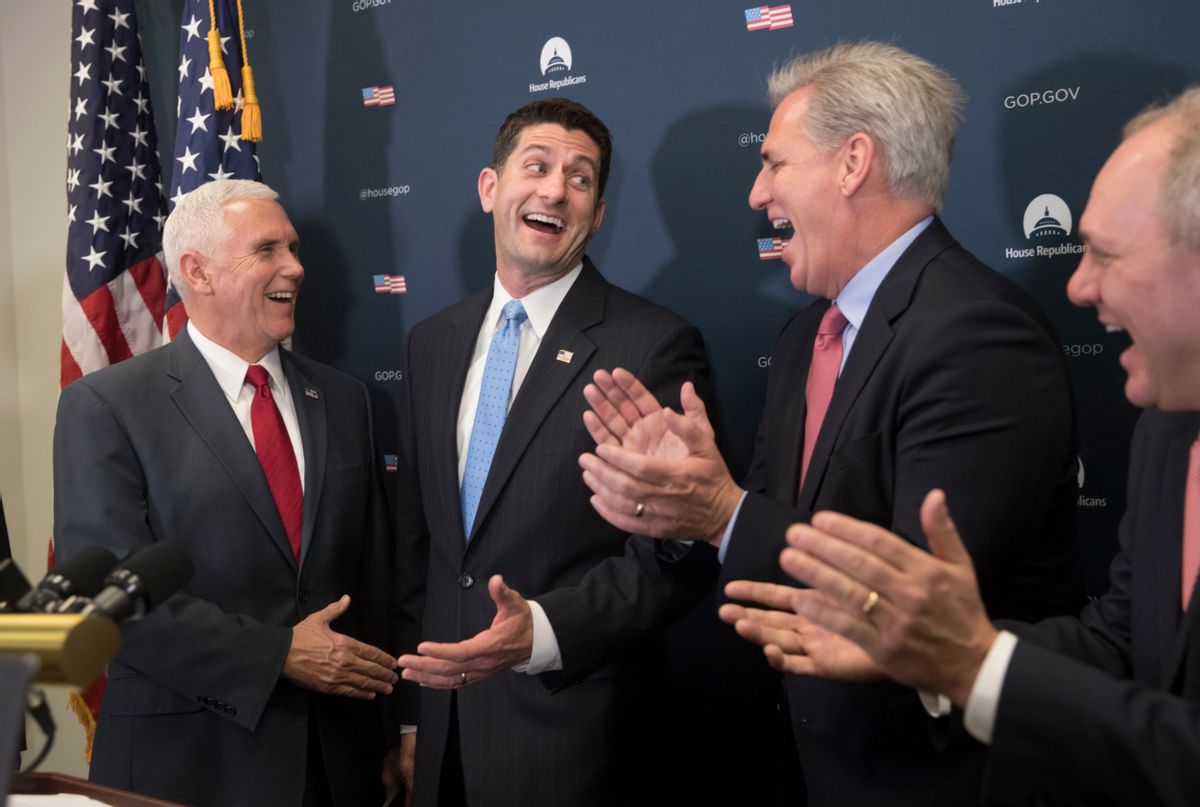The House Republican leadership's efforts to pass a major overhaul to health care have once again been stymied by its members.
"We are not voting on health care tomorrow," Majority Leader Kevin McCarthy, R-Calif., told reporters following a Thursday night meeting. "We're still educating members."
The news comes as a blow to President Donald Trump, who had been pushing for a complete revamp of Obamacare before his 100th day in office. Several news reports have indicated that the leadership may try to schedule a vote as early as next week.
That might not happen, however, because the revisions the GOP has been making to its American Health Care Act appear to have been primarily designed to placate the House Freedom Caucus, a far-right collection of Republicans who resolutely opposed the original version of the bill.
While Rep. Tom MacArthur, R-N.J., who chairs the Tuesday Group of more moderate Republicans, was involved in the negotiations, there were numerous signs during the discussions that he was not speaking for his colleagues.
The sticking point for the centrists, who compete in politically mixed environments where they face strong Democratic competition, appears to be the revised bill's provisions for people who wouldn't otherwise be able to afford insurance due to expensive medical issues or being elderly.
Under the GOP's current bill, health insurance firms would be allowed to charge customers as much as they want but people who were priced out of the market could move to "high-risk" plans, subsidized by the federal government. States could create their own ones as well.
On Thursday the revised measure came under attack from the AARP, which said that the latest Republican proposals amounted to "Washington politics at its worst" because the high-risk markets that existed before Obamacare's enactment rarely received adequate government subsidies, leading to extremely high prices for people purchasing plans in them.
"For consumers who have buy coverage in a high-risk pool, AARP’s [Public Policy Institute] projects that the premiums could reach $25,700 a year in 2019, when this provision would go into effect," the association said on its website.
Several more moderate GOP members have publicly come out against the bill.
“Protections for those with pre-existing conditions without contingency and affordable access to coverage for every American remain my priorities for advancing health care reform, and this bill does not satisfy those benchmarks for me," Rep. Ryan Costello of Pennsylvania told Politico. "I remain a no vote on this bill in its current form.”
The House Republicans have also come under criticism for refusing to let outside health care experts give advice about the legislation.
“They’re not interested in how health policy actually works," an unnamed insurance company executive was quoted by the Los Angeles Times. “It’s incredibly frustrating.”
While public opinion polls show most Americans would prefer that the GOP work with Democrats to improve Obamacare or do nothing at all about it, people who vote Republican strongly want a repeal of the law. Given how the only real competition that most Republicans face is a primary challenge from their right, House GOPers are in a difficult situation where they must choose between general election voters and primary election voters.



Shares